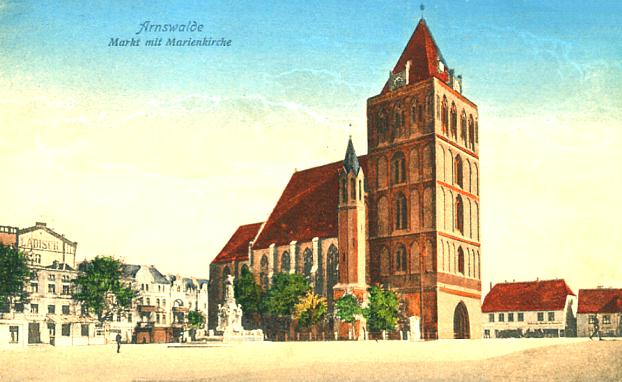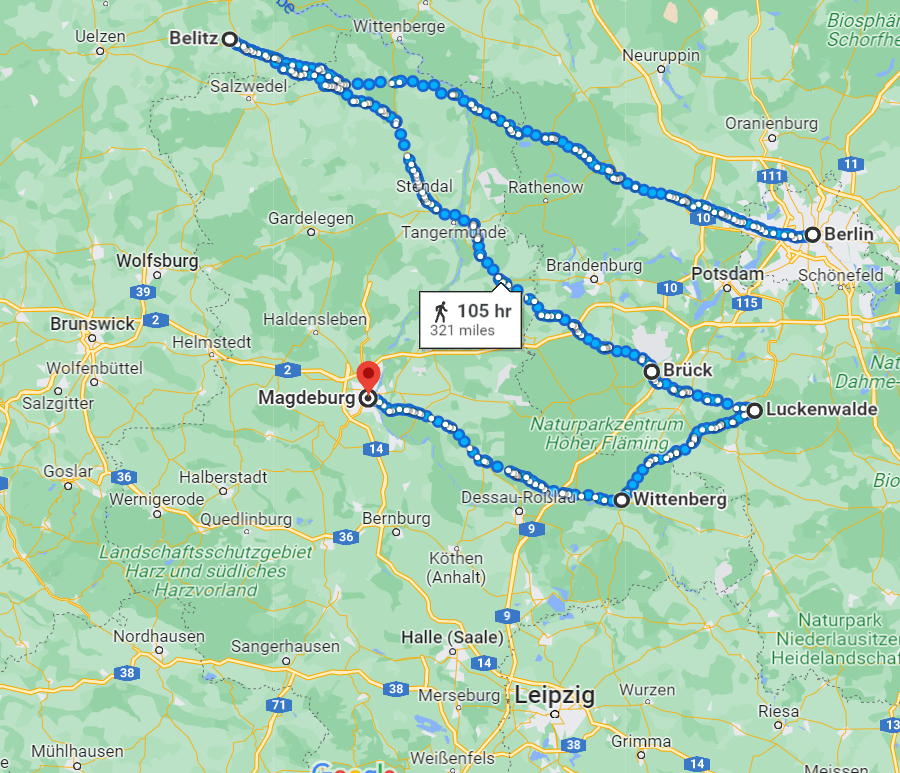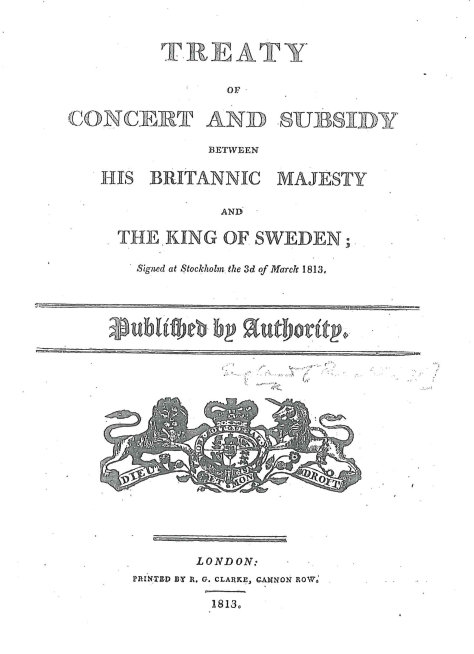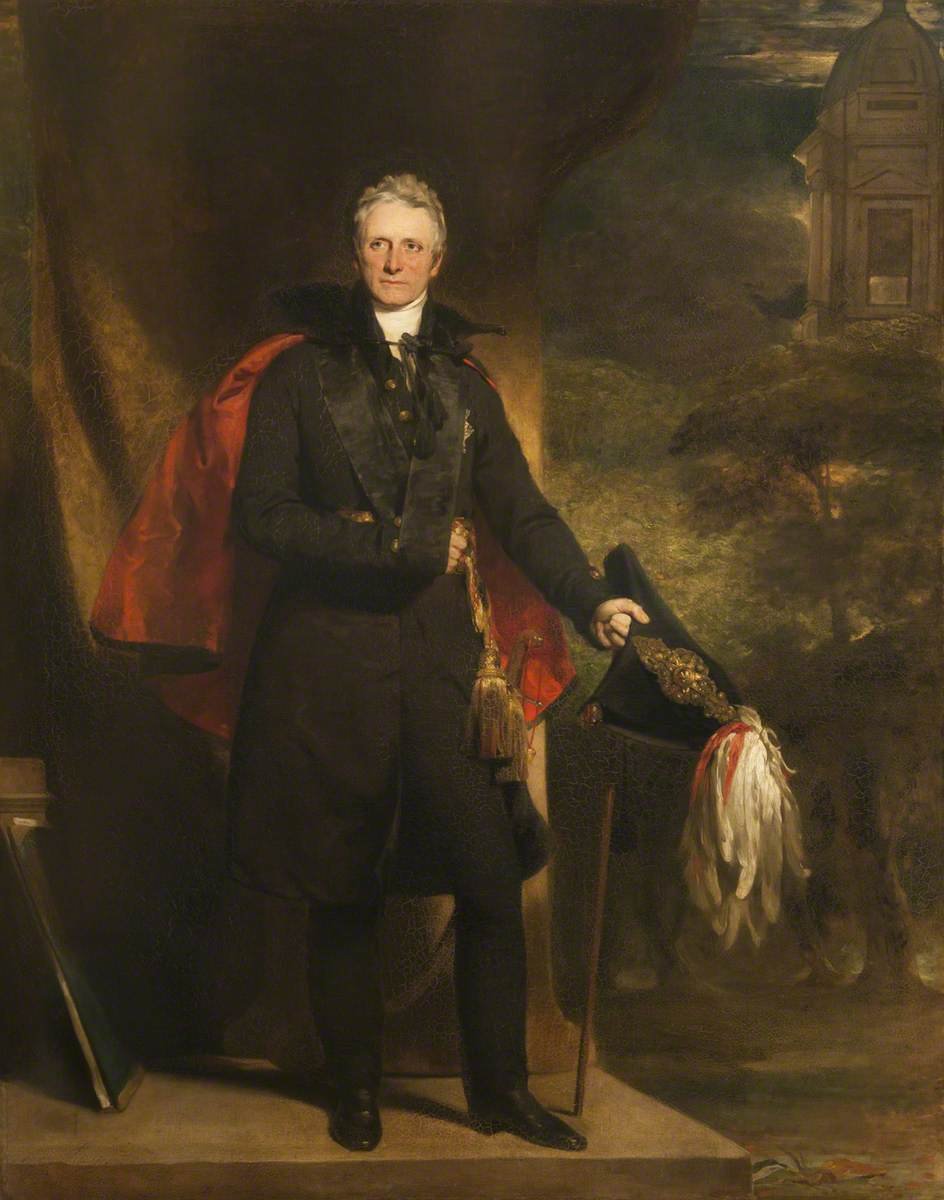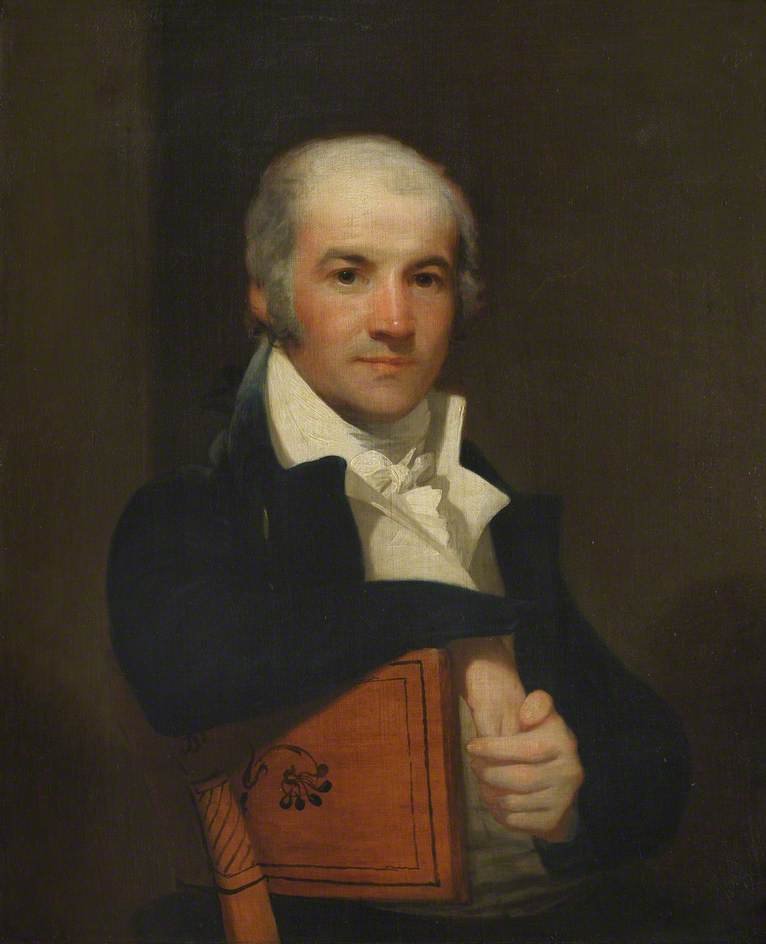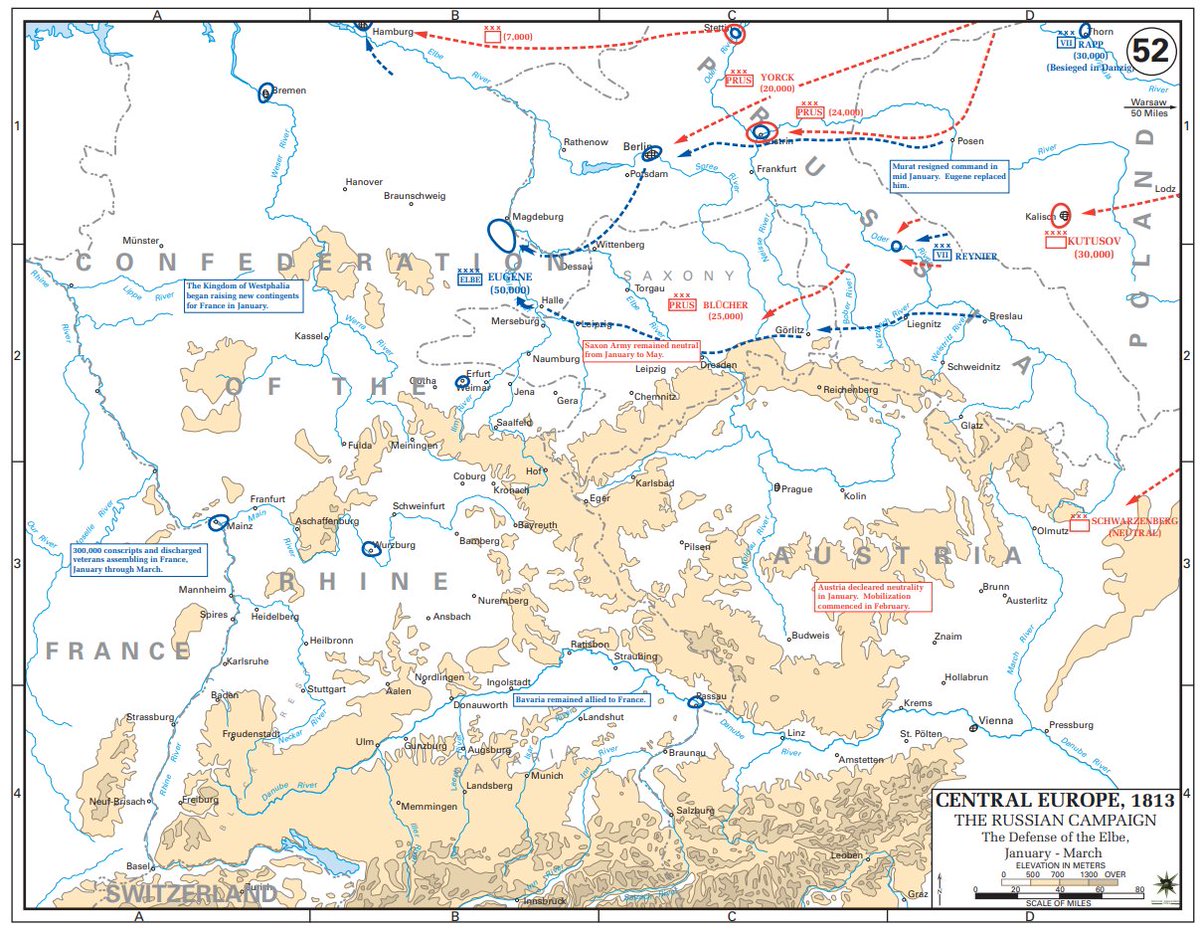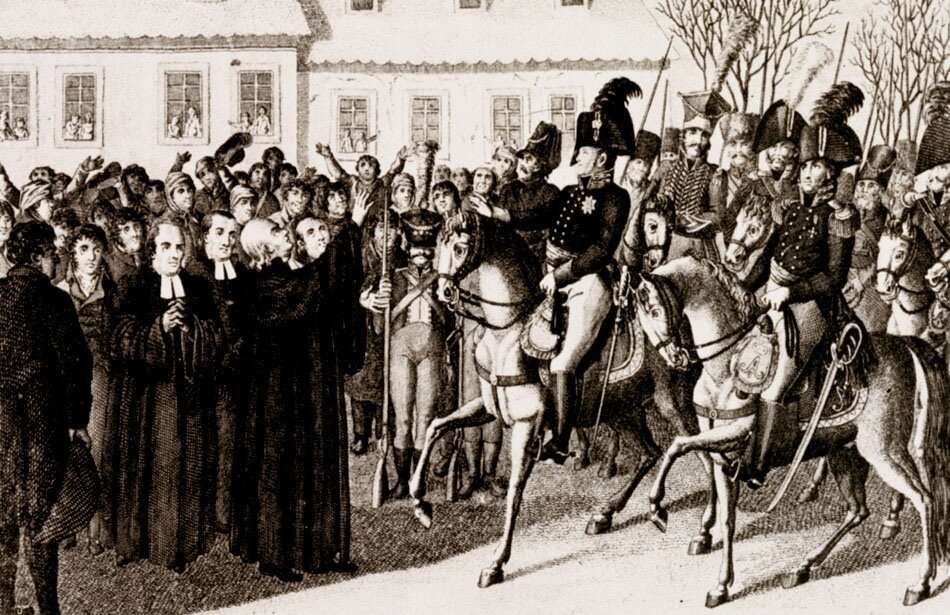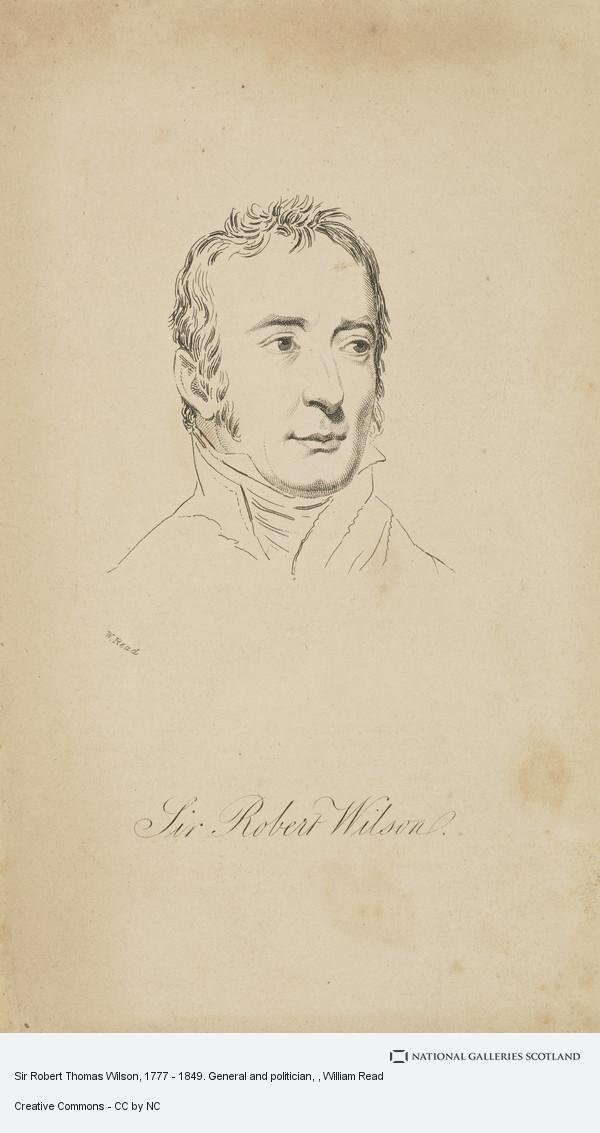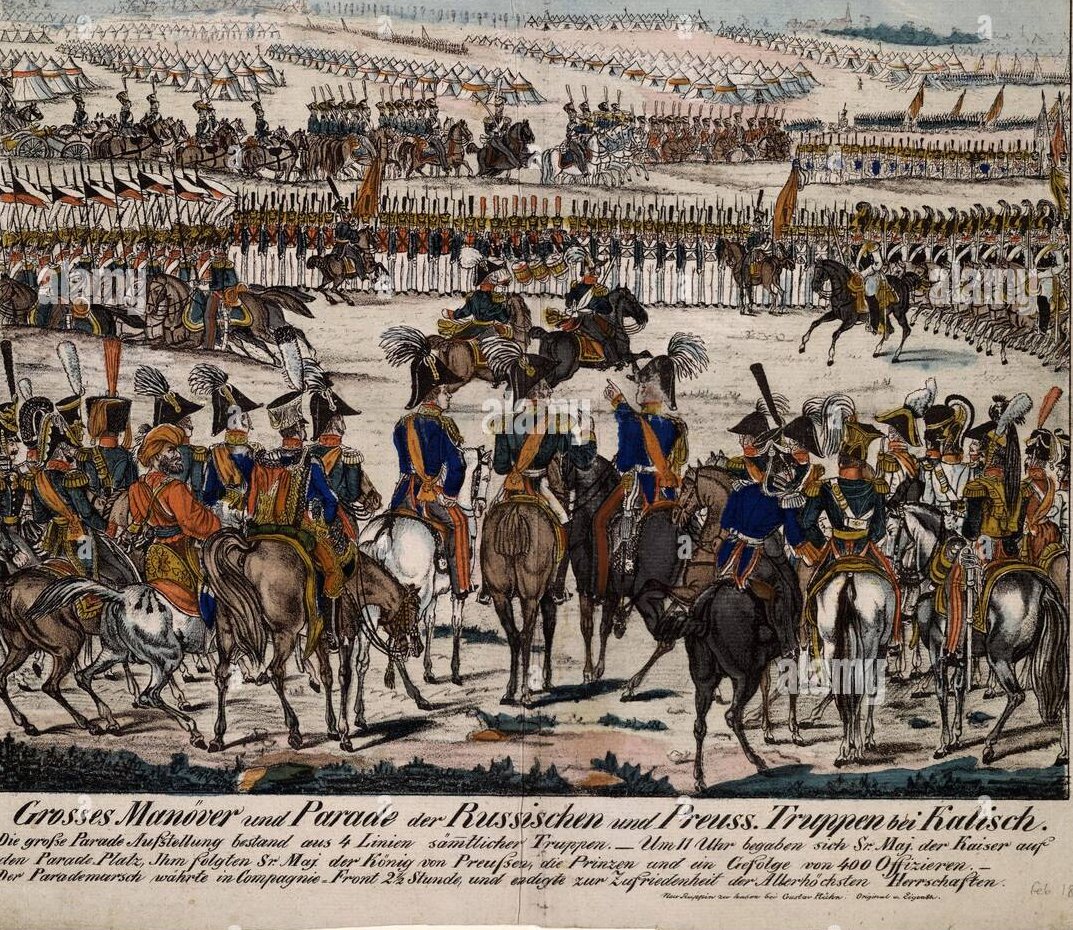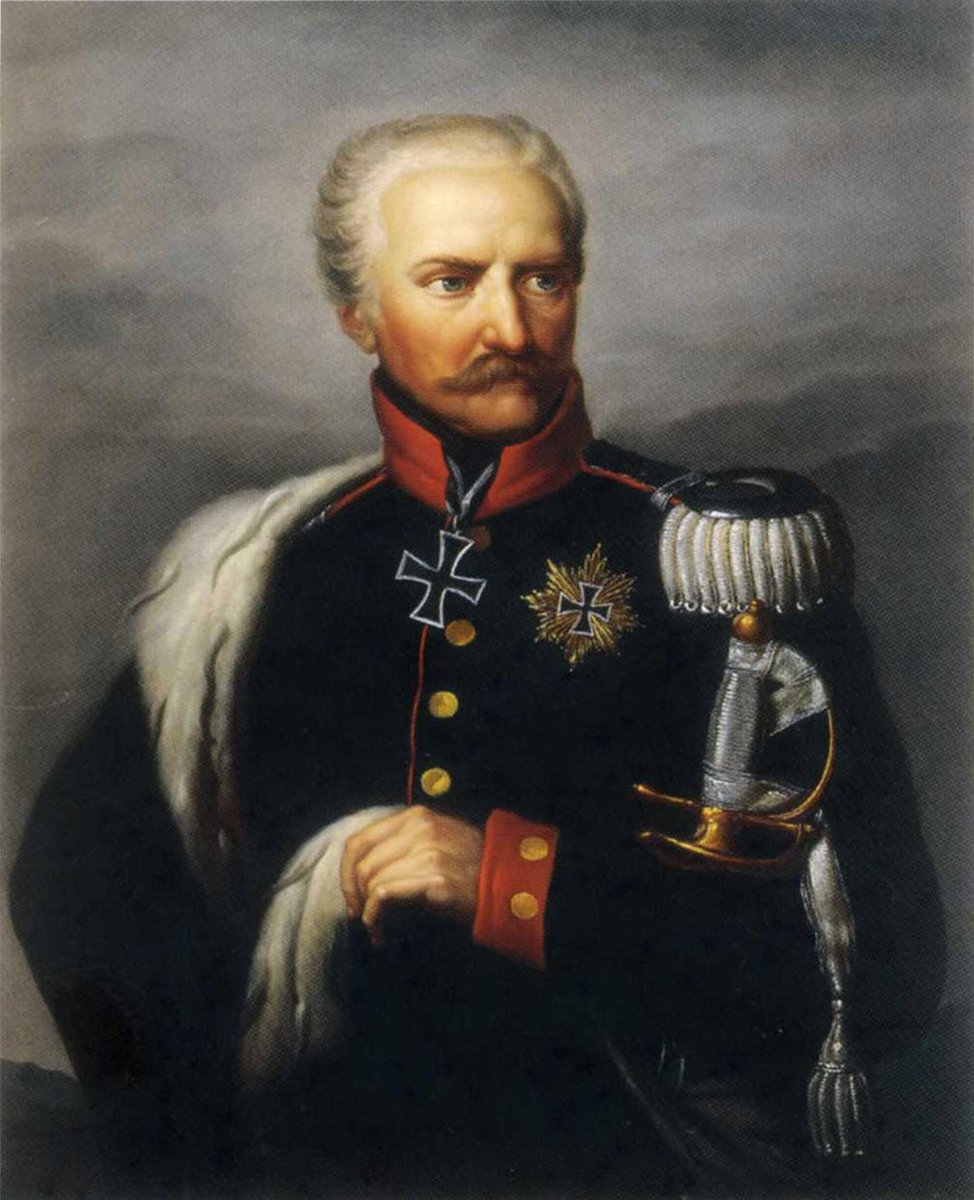
#OTD #Onthisday At dawn on 4 March, 1813, Viceroy Eugene and Marshal St. Cyr began withdrawing their forces across the left bank of the Elbe, abandoning Berlin altogether.
Prince Repnin's advanced guard swiftly occupied the Prussian capital, liberating it from the French hand.
Prince Repnin's advanced guard swiftly occupied the Prussian capital, liberating it from the French hand.
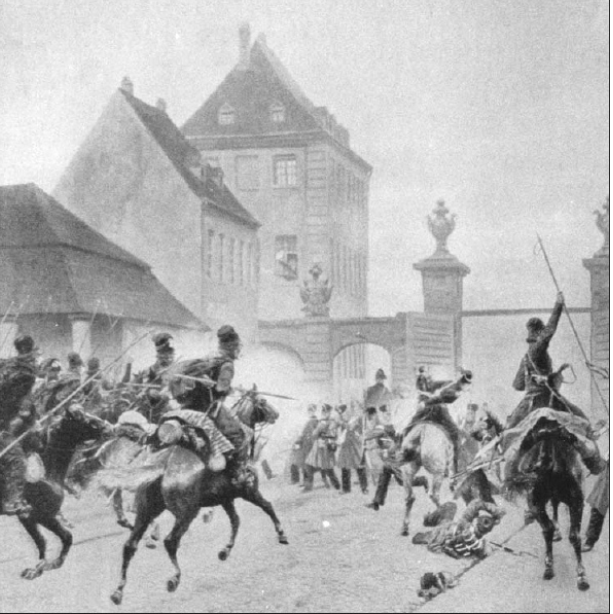
Two days ago, the French army had spotted the Russian infantry about to ford the Elbe from multiple points. With Eugene in Schoenberg, the men reconnoitered the nuclei around Berlin. Confirming the continued Russian operation on the right bank, the viceroy reported on the 3rd:
"Sire, under these circumstances, I must not prolong my stay in Prussia any longer, and whatever it costs me to abandon Berlin, the lack of cavalry forces me to withdraw the troops I have with me to the Elbe."
If not, the enemy could seize the road ahead to Leipzig.
If not, the enemy could seize the road ahead to Leipzig.
The retreat began at first daylight on the 4th, a particularly foggy day. It was the third time, after the Vistula and the Oder, for Eugene to abandon the natural border between France and the Confederation of the Rhine.
(Eugene to Nap, 3-4 February, 1813; Forster)
(Eugene to Nap, 3-4 February, 1813; Forster)
Eyewitness accounts vividly illustrate the moment their capital was liberated, in six years, from the yoke of the foreign rule.
Karl Friedrich von Klöden (1786~1856), a polymath graduate of the University of Berlin, wrote:
Karl Friedrich von Klöden (1786~1856), a polymath graduate of the University of Berlin, wrote:
"From that day [February 20th] the French camped in the Linden Avenue, regarding the iron railings as a breastwork. Each street opening into the Linden was commanded on either side by cannon or howitzers , so as to be enfiladed. At night the men slept by their camp fires. 
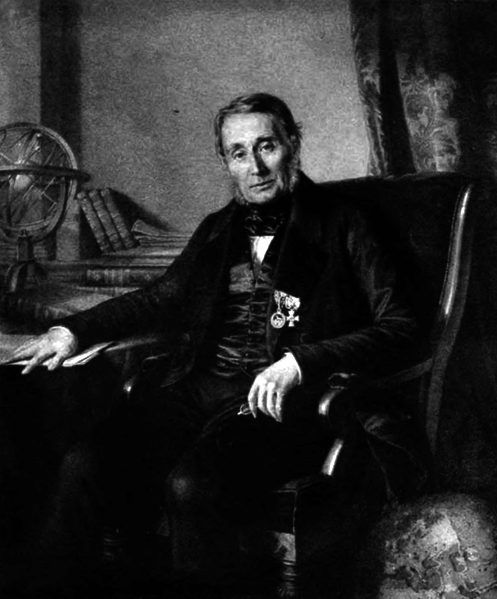
This arrangement lasted until March 4th, when the French left Berlin.” (Klöden; Schlosser)
According the letter from an anonymous spectator on the 6th, those lingering inside the city were suddenly running for the Halle Gate, which they, "in all haste...had forgotten to lock."
According the letter from an anonymous spectator on the 6th, those lingering inside the city were suddenly running for the Halle Gate, which they, "in all haste...had forgotten to lock."
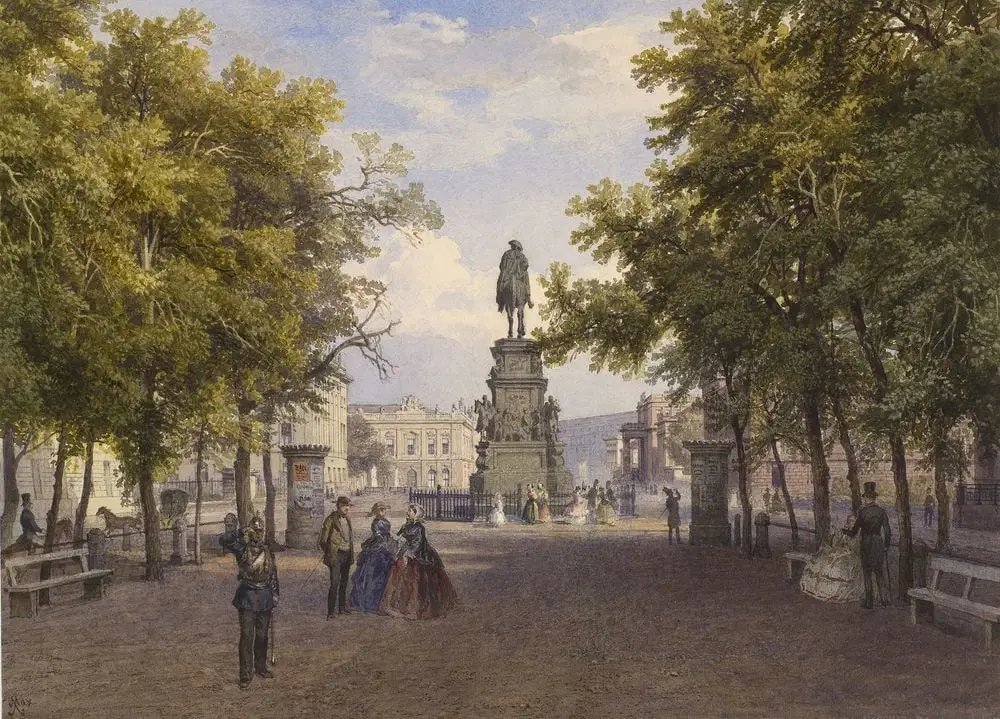
Around 9 o'clock in the morning, the Cossacks took notice of the open door. Having entirely been "on their heels" last night, they poured themselves into the city, and "brought back a good part of the stragglers as prisoners."
(6 March, 1813, Anonymous; Forster; Eugene, 4 Feb)
(6 March, 1813, Anonymous; Forster; Eugene, 4 Feb)
Soon, the entire force commanded by Prince Repnin, the advanced guard of Wittgenstein's army, entered Berlin in triumph.
"The victorious standards of His Imperial Majesty [Alexander] are flying over Berlin," Wittgenstein, full of zeal, reported to Kutuzov.
(Lieven)
"The victorious standards of His Imperial Majesty [Alexander] are flying over Berlin," Wittgenstein, full of zeal, reported to Kutuzov.
(Lieven)
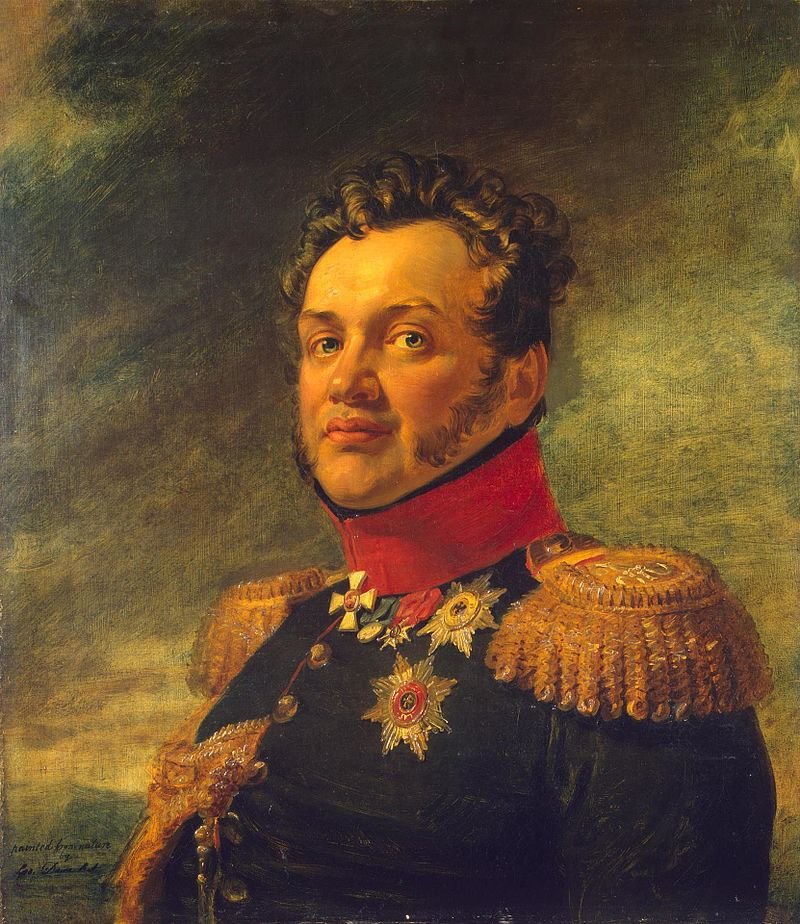
Yorck was passing Märkisch Friedland (Mirosławiec). In the same morning, he received a dispatch from Kutuzov announcing the successful conclusion of the treaty of alliance in Kalisch. Wittgenstein, who had been pushing the Prussian general to join him promptly, wrote to him: 
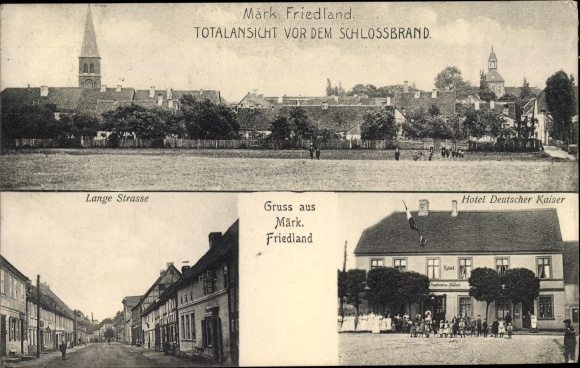
"I have now decided...to march with my corps to Berlin in one go, with only one day of rest, and I regret infinitely that Your Excellency has not yet been informed of the conclusion of the alliance between Prussia and Russia, so that we can operate together.
Since, however, Your Excellency has already received His Majesty's order to follow me, I believe you will be able to follow me across the Oder without compromising anything, all the more so since there is no longer any enemy in Mittelmark."
(Wittgenstein to Yorck; Droysen)
(Wittgenstein to Yorck; Droysen)
Yorck, in conjunction with Bülow marching in parallel with him, would cover the right flank of the Russian corps advancing from Stettin.
By the end of the day, Eugene arrived in Saarmund, about 35 miles south of Berlin and 80 miles north of Leipzig.
(Droysen)
By the end of the day, Eugene arrived in Saarmund, about 35 miles south of Berlin and 80 miles north of Leipzig.
(Droysen)
En route, Intendent Dumas witnessed how "all the inhabitants of the country were hastening to take up arms" and "battalions of landwehr were formed."
After putting up with these "insulting observations" for two days, the withdrew "towards Wittenberg and Magdeburg."
(Dumas)
After putting up with these "insulting observations" for two days, the withdrew "towards Wittenberg and Magdeburg."
(Dumas)
Here, Eugene let Napoleon know that he had no choice but to leave Berlin. Along the way, a brigade general of Grenier's corps "received the enemy attack with great composure," leading to a lively exchange between the French rearguard and "50 Cossacks or Russian dragoons." 
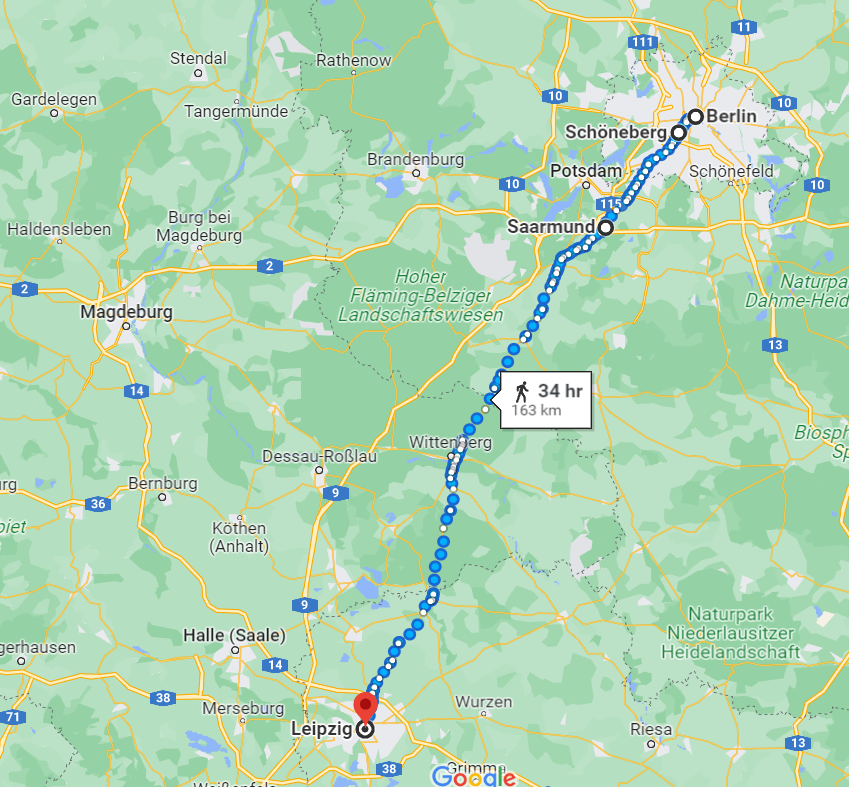
He worryingly reported that "General Grenier doubts that they are Russians" and "could be some of his own volunteers." In context of Hope's mission to Stockholm in February, they could have been German deserters who had defected to the Russo-German Legion sponsored by Sweden.
A dispatch from Lauriston informed Eugene of "some seditious movements...in Hamburg," the garrison of which was currently maintained by Rapp and Macdonald. But the viceroy was too pressed for time to redirect his attention to the north.
(Eugene to Napoleon, 4 March 1813)
(Eugene to Napoleon, 4 March 1813)
-The End-
@threadreaderapp Unroll
• • •
Missing some Tweet in this thread? You can try to
force a refresh


